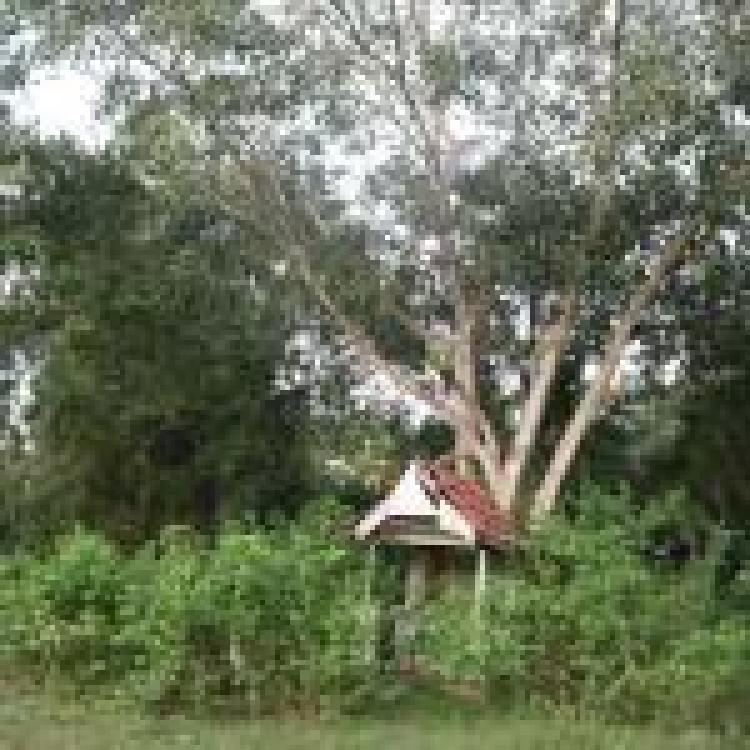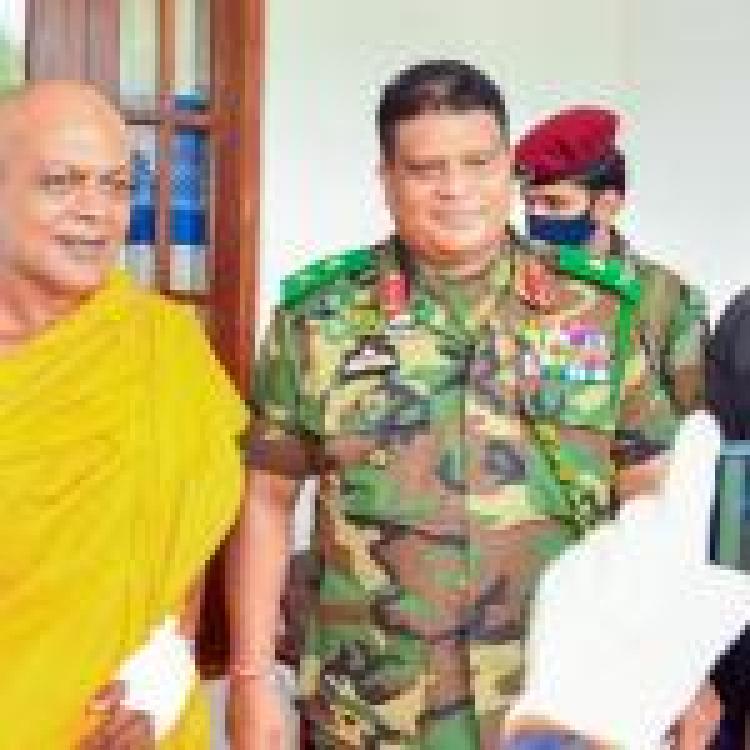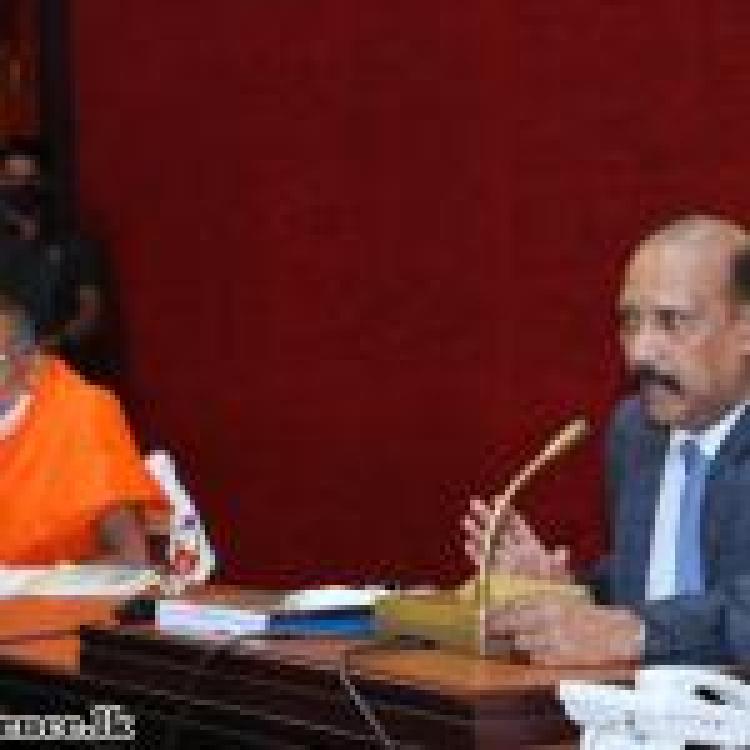Sri Lanka’s president Gotabaya Rajapaksa pledged to allay “legitimate fears” over the “Sinhala race” and further strengthen the security apparatus in a speech laced with ethno-nationalist rhetoric aimed at his Sinhala Buddhist base on Wednesday.
“It is no secret that the majority who voted for me then were Sinhalese,” Rajapaksa told Sri Lanka’s parliament. “They rallied because they had legitimate fears that the Sinhala race, our religion, national resources and the heritage would be threatened with destruction in the face of various local and foreign forces and ideologies that support separatism, extremism and terrorism.”
“During this short period of time we have taken steps to ensure the security of the country as requested by the people,” he added. “The public should not have apprehensions on this issue any longer.”
The speech, which was broadcast on Sri Lanka’s radio and television channels marked a year of rule for the war crimes accused president. His time in office has been marked with the jailing of critics, a growing militarization and with the expansion of Sinhala Buddhist nationalist moves.
Outlining the Sinhala nationalist steps he has taken, Rajapaksa said that he meets with an “advisory council comprising leading Buddhist monks of Three Chapters every month to seek their advice”. “The country was becoming insecure due to the weakening of the intelligence and security forces,” he claimed. “Historic sacred sites of archeological value were being encroached by extremists.”
The regime’s appointment of an all-Sinhala task force on archaeology for the Eastern province, which is being overseen by the military, has come under widespread criticism from Tamils. Rev. Fr. Rajan Rohan, the secretary of Inter-Religious Forum in Batticaloa, warned that such moves are impacting on Tamil, Hindu, Christian and Muslim communities as Sinhala Buddhist colonization ramped up.
Rajapaksa though called it a move to “preserve our Buddhist and national heritage”.
“I have always acted in accordance with the pledge I made in front of Ruwalweli Maha Seya to protect the unity of the country and to safeguard and nurture the Buddha Sasana as per the Constitution, the supreme law of this country,” he added.
The Sri Lankan president, who is credibly accused of directing war crimes, also claimed to have “restructured and revitalized” Colombo’s intelligence apparatus. “After I came into power, I appointed suitable officials in charge of security apparatus of the country and gave them the required authority to carry out their responsibilities without any compromise,” he said, pointing the promotion of several senior military figures.
“Accordingly, we have managed to control the possibility of a resurgence of extremism in any form.”
.jpg)
Rajapaksa with Shavendra Silva at his swearing in ceremony last year.
Rajapaksa’s appointment of senior military figures has also come under criticism, with several individuals accused of overseeing war crimes also posted to prominent roles. Amongst them is army chief Shavendra Silva, who is currently barred from travel to the US over his role in atrocities. Silva currently heads Sri Lanka’s coronavirus task force.
“The era of betraying war heroes, selling national assets, willingness to accept any deal for short-term gains, allowing foreign forces to interfere in the internal affairs of the country have now come to an end,” declared the Sri Lankan president, referring to a UN Human Rights Council resolution on accountability that the previous regime co-sponsored. Since coming to power, Rajapaksa has withdrawn his country from the resolution and pardoned a Sri Lankan soldier who was sentenced to death for the massacre of Tamil civilians.
“We have once again shown the world our position as a proud, sovereign country, ready to maintain friendly relations will all the nations, non-aligned, non-partisan in conflicts between powerful nations,” he claimed. “This is the reason today why we receive due respect from regional powers as well as global powers.”
“I am a person who has constantly faced challenges and overcame them,” Rajapaksa added. “I am not a person scared of empty threats. I don’t have the habit of simply running away from problems.”
“I have a vision for my country,” he concluded. “The time has come for all of us to join hands as productive citizens with the team spirit and fulfilling responsibilities in a disciplined manner in building the prosperous nation we promised to our people.”
See the full text of his speech here.



